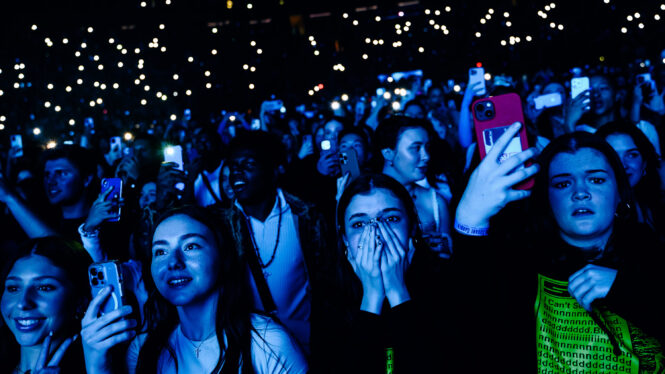Ticketing for live events is not only under the Justice Department’s microscope but front and center for music fans across the country. This focus places our industry at a crossroads. We can either stay with the status quo, in which events are egregiously expensive and funds go to resellers rather than artists and venues, or we can use this moment to support reform that benefits the broader live event ecosystem.
For too long, fans, artists, and venues have been caught in an unchecked marketplace riddled with speculative ticketing, deceptive practices and exorbitant price gouging.
But all is not lost. We have an opportunity to establish guardrails that protect fans, create trust and promote a healthy live event industry.
The Fans First Act is the right bill, at the right time. If passed, this important bipartisan legislation will bring much-needed enforcement and transparency, prohibit deceptive websites, disclose resellers, and ban speculative ticketing. That is why we call on Congress to pass this important legislation and move it to the White House for signature.
The Problem
To understand why we need the Fans First Act requires a full understanding of the problem and how we got here.
Fans find themselves in a perfect storm. Amid inflation and an unpredictable economy, they face bots, brokers and skyrocketing prices for live experiences (concert ticket prices have increased by 35% since 2019), according to Pollstar. While fans are eager to see their favorite acts and artists live, too many cannot.
Music festivals are a prime example of live events looking to adapt to the current economic environment of increased costs for fans (tickets, travel/lodging and food) and rising production fees. Unfortunately for fans, this means canceled events. This year, many festivals have been canceled as organizers look to consolidate and adjust to rising fees and economic constraints.
Dig deeper into the fan experience and we find that many fans’ first engagement with live entertainment is through a reseller on a secondary ticketing site, sometimes posing as the actual venue.
Fans are often asked to cough up well over $500 for a decent ticket on the secondary market, and that’s for real tickets. A buyer has no sense of clarity about the primary ticket seller. For example, Seattle fan Kerry Dellisanti had her own dream crushed when her $895 nosebleed ticket for a Taylor Swift concert turned out to be speculative (fake). Her friends ended up enjoying the show without her.
Fans across genres and localities are frequently deceived by fake tickets. Many book non-refundable travel and hotels for concerts they think they have a real ticket for, but they’ve been scammed.
Everyone is losing in this environment.
Unscrupulous brokers and illegal bots have been increasingly detrimental to consumers. As they resell tickets at the highest possible price, it’s having a direct impact on the full ecosystem of live events, harming fans, artists and venues alike.
Sky-high profit margins for the secondary ticket seller means fans are seeing fewer shows and spending less on venue concessions and merchandise that sustain organizers and artists. When fans show up at a venue with a fake or overpriced ticket, the predatory seller who defrauded them is nowhere to be found. It is the venue owners, artists and small businesses who are left to pick up the pieces of this unchecked ticketing ecosystem.
The Solution
Our industry is at a crossroads. Cater to the resellers and brokers who have no investment in the concerts? Or swing the power of the live performance industry back into the hands of fans, artists and venues?
We call on Congress to pass the Fans First Act. Fans, artists and venues are the lifeblood of the live entertainment industry and their experience should always be at the forefront. The time is now to give the industry back to the people who make it tick and get back to what makes live events and music so important — and what fuels local economies across the country.
The connection. The experience.
Julia Hartz is co-founder, CEO and executive board chair of Eventbrite.
Stephen Parker is executive director of the National Independent Venue Association (NIVA).
https://www.billboard.com/pro/senate-bill-lower-concert-ticket-prices-support-guest-column/






